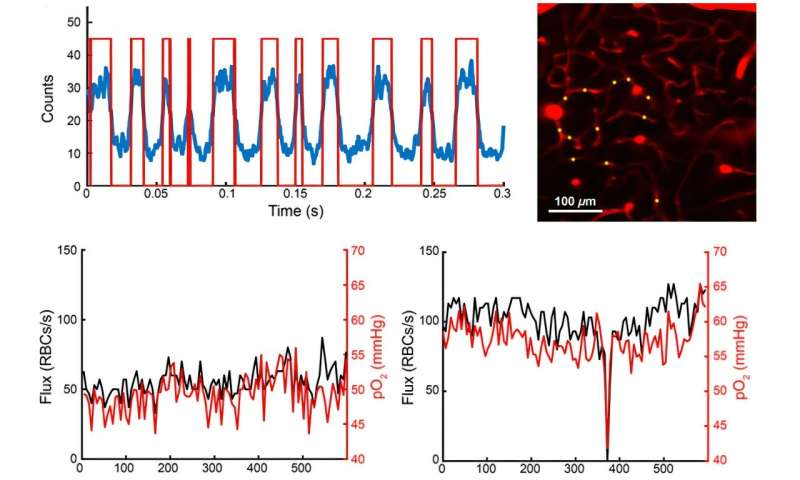While it is known that blockages in larger vessels can have devastating consequences, less is understood about the effects of momentary stalls in the smallest vessels, the capillaries. These stalls have been observed more often in aging and in conditions such as Alzheimer’s disease, stroke, and traumatic brain injury.
A new study led by researchers at Boston University and Massachusetts General Hospital shows that even brief interruptions in capillary flow can cause rapid, localized drops in oxygen that likely extend into nearby brain tissue. The study is published in Neurophotonics.
Using advanced two-photon phosphorescent lifetime microscopy, the team measured red blood cell passage and oxygen levels in more than 300 capillaries in awake mice. This technique allowed them to track stalls—moments when red blood cells temporarily stop moving through a vessel—and monitor the resulting oxygen changes in real time.

